Protests swept the Democratic Republic of the Congo for the third day, as demonstrators marched against a proposed change to the country's election laws.
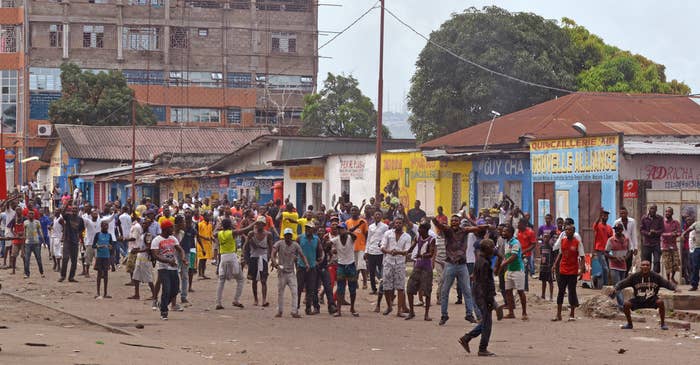
The protests first began after the Congolese lower house of parliament passed a piece of proposed legislation that, if enacted, would require a referendum to be held before a new national election for president can take place. Opponents maintain that this would be a backdoor method for Congolese President Joseph Kabila to dodge the term limits in place for at least another year.
Four people were reportedly killed during clashes between protesters and police on Monday. One human rights group now says up to 42 people have died throughout the week at the hands of security forces.
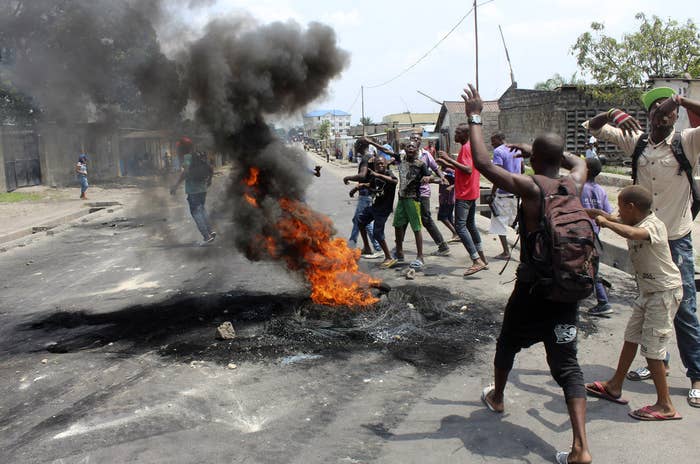
In response to the protests — which have centered so far around the government-run University of Kinshasa — Kabila's government, in addition to deploying riot police, has reportedly shut down the internet for periods. Activists and members of the opposition have been using the hashtag #Telema to organize the protests. According to The Guardian, "telema" is a "call to 'arise' or 'stand up' in the Lingala language."
The Catholic Church, which holds a large amount of sway in a country where half of the 77 million Congolese identify as Catholics, agrees. On Wednesday the local cardinal firmly backed the protests.
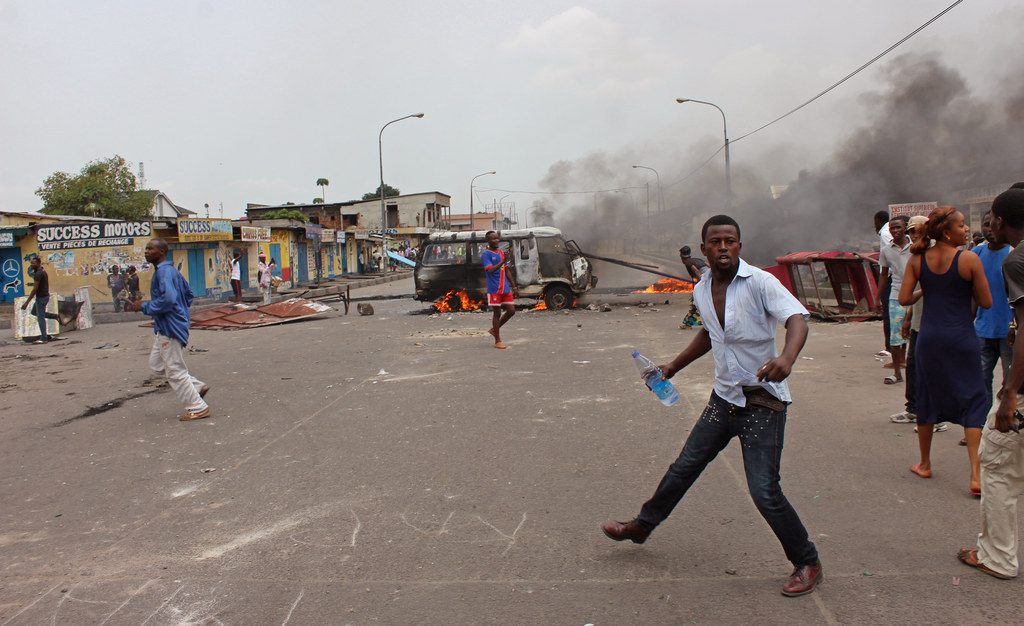
"We disapprove of and condemn any revision of the electoral law that aims to ... illegally postpone the holding of the elections in 2016," Cardinal Mosengwo Pasinya said in a statement. "We condemn these actions that have caused deaths and make an urgent appeal: Stop killing your people; don't march on the ashes of your compatriots," he continued, accusing some politicians and security forces of making the violence worse.
During the last presidential and parliamentary elections in 2011, Congolese voters reported mass confusion and logistical chaos, punctuated with violence against polling stations and civilians.
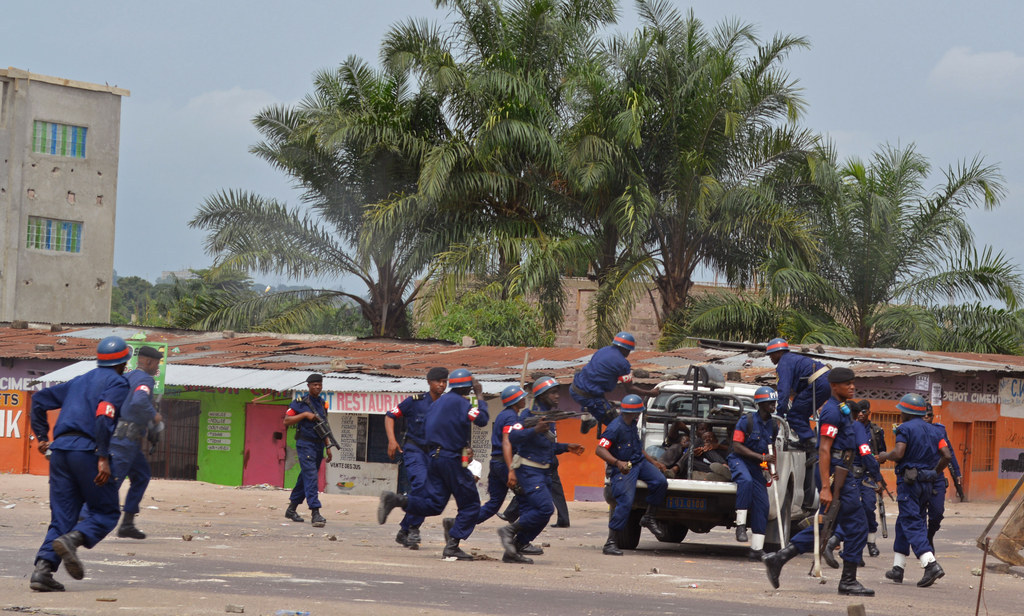
As recently as October 2014, Congolese police have been accused of major human rights violations, including summary executions during a crackdown on gangs. In response to the criticism, Kabila expelled the top U.N. human rights official in the country.
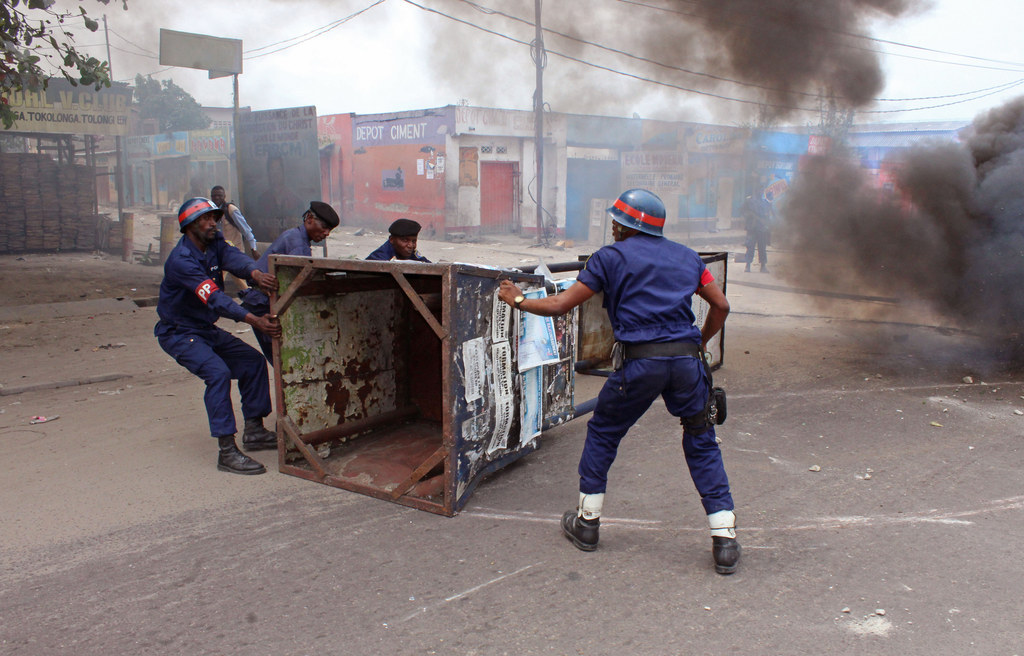
The United States on Tuesday, along with criticizing violence generated by protestors and looting, called on "all Congolese security forces, as well as civil society and opposition members, to exercise restraint and refrain from acts of violence."
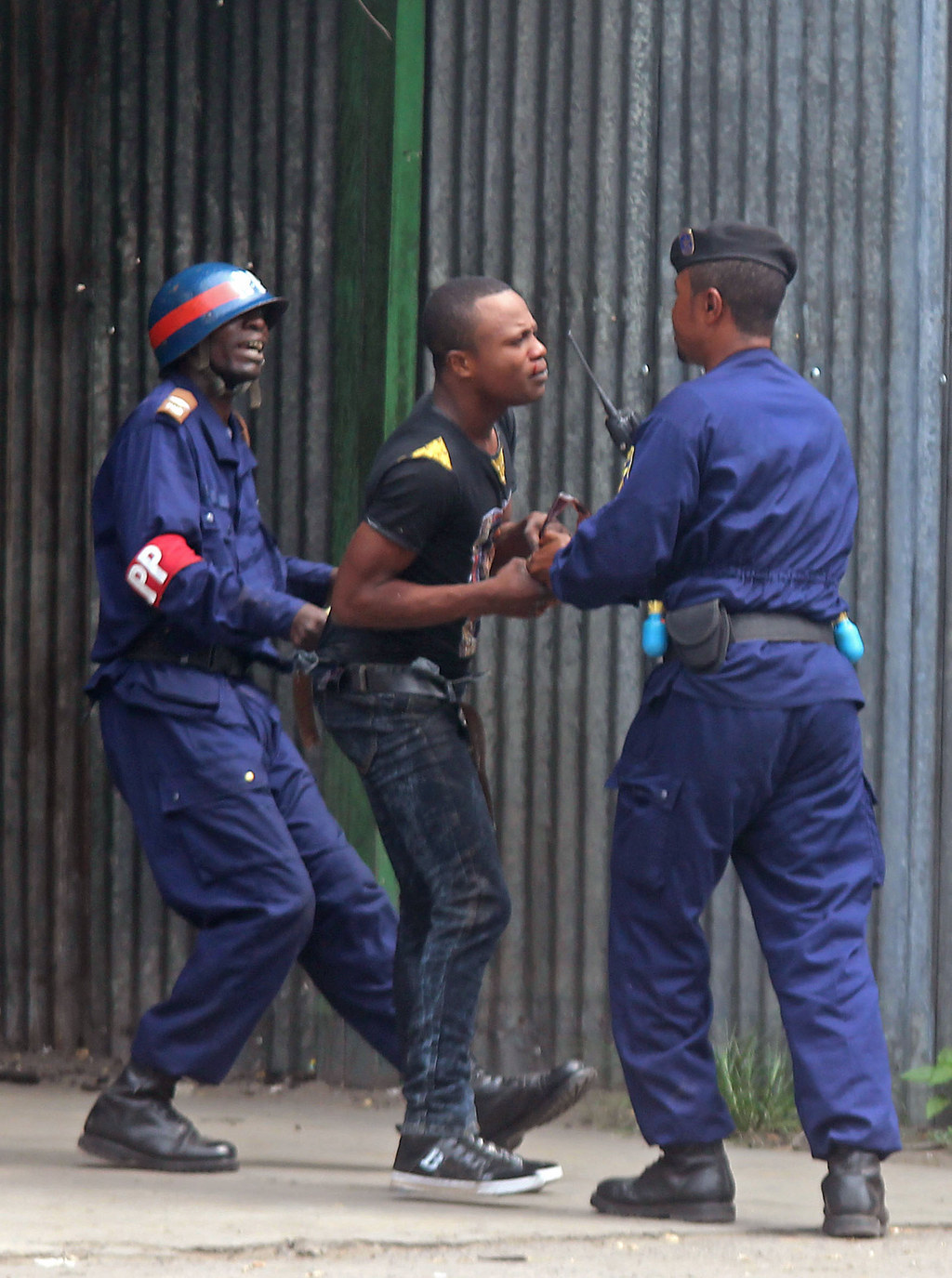
Kabila, who was sworn into his second and final five-year term in 2011, first assumed the role of leader of the Congo from his father, a former general and main figure in the civil war that consumed the Congo and its neighbors in the late 1990s.
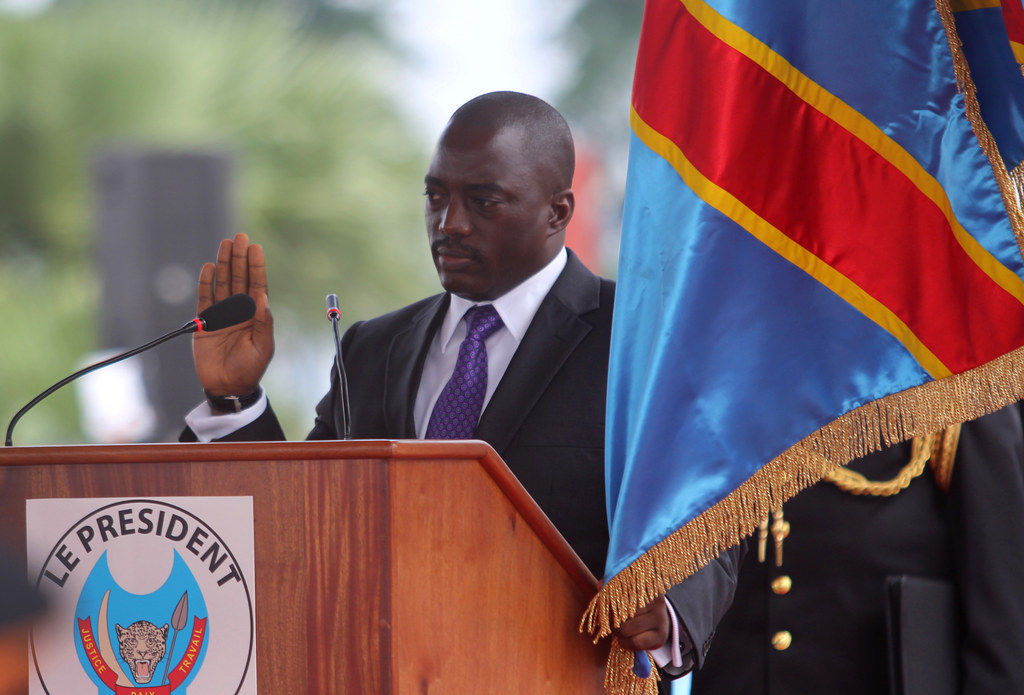
There are 77 million citizens of the Democratic Republic of the Congo. An earlier version of this article used statistics from the neighboring Republic of the Congo.

